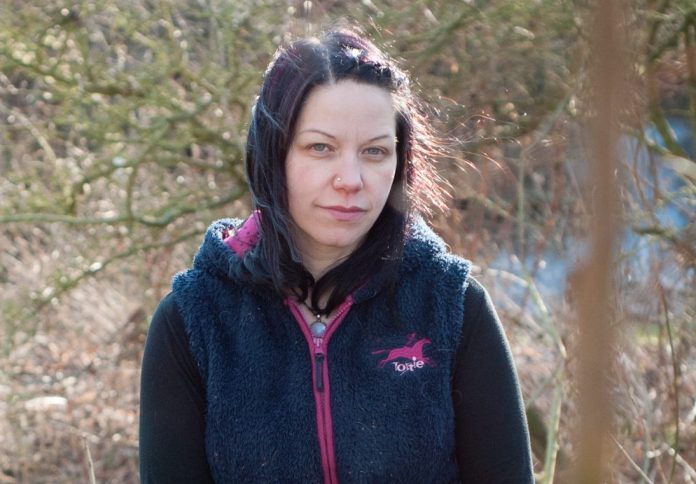I’ve always loved animals but did not know there were jobs in this field other than being a veterinarian. So I did not know it was possible to study animals in the wild and work in animal conservation until my first year of university.
I have worked at Oxford Brookes for 20 years. I originally studied British history and literature with an aim of becoming a journalist. It was when I took a class in biological anthropology I found out it was possible to study primates in the wild.
So I changed my degree to anthropology and later did an MSc and PhD in that subject too. I also did a Certificate d’universite de primatologie in France
Working in animal conservation
There are multiple parts to my job. I may teach students in traditional lectures or supervise the conservation projects of MSc and PhD students. I run an international conservation project – the Little Fireface Project. This involves posting conservation messages to social media; keeping in touch with team members; getting news on all the lorises we study; writing scientific papers and grant applications and reports; checking on equipment and making sure everything is in working order; making sure we have the research data for certain topics.
At the moment we are developing a conservation coffee project so a new part of my job is understanding how to develop a business from scratch, meeting with designers, coffee roasters, importers and farmers.

I also am the editor-in-chief of a major international primate journal so I need to check articles every day. And I’m the University Lead of Public Engagement for Oxford Brookes so I help to train people on ways to make their research meaningful to different types of people.
On the side, I run a little Etsy shop to sell handicrafts and artwork to support slow loris conservation and liaise with various artists who support that. Some of them also help to develop educational materials for children, which we distribute around our field site.
Setting up in Indonesia
Slow lorises are incredibly endangered. It turns out that in Indonesia the main reason is the pet trade.
Slow lorises were dying rapidly in rescue centres. It was not known what they eat, what habitat they live in or how social they were. So we wanted to find out. Indeed, the International Union for Conservation of Nature (IUCN) advises never to release animals until all this information is known.
Currently, we do not even know how many species of slow lorises there are. At the moment the Javan slow loris is one of the two most endangered loris species in the world so I chose to focus on that one.
What does the project do?
For nearly ten years, we have studied the animals continuously every night.
We advise zoos and rescue centres on their behaviour and help to identify new species. We develop education materials to be used locally and internationally, including for social media where many illegal slow lorises feature as cute pets.
And we work with governments to help identify species in seizures and help to decide if animals can be reintroduced to the wild.
Discovering a new species
To be honest, it is not as exciting as you think! Slow lorises have such a huge range, it is not surprising there are many new species. What is sad is when others, because lorises are nocturnal and often not considered “important’, ignore that new species exist and for example release them in the wrong place.
So sometimes discovering a new species is sad as it can highlight how little people can care about non-charismatic animals.
My advice
Literally follow your dreams. If you work hard, if you complete every task to a high level; if you work unselfishly for the animals and not for your own goals; then you can do it!
Many people will tell you it is impossible to get a career in animal conservation. As long as you work hard, you will be able to do it.
When you learn a skill, keep at it. Skills you don’t realise you will need later come into play. Everything that happens to you, even if it is hard, can be a valuable lesson so keep fighting!
